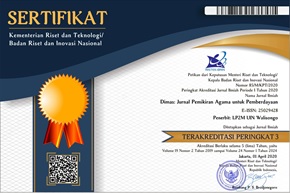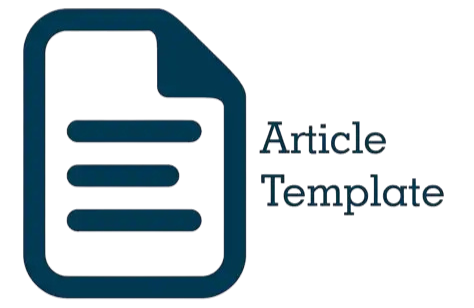The Quality Improvement Assistantship Program for Madrasa Education in Mindanao, the Philippines
DOI:
https://doi.org/10.21580/dms.2023.231.14950Keywords:
teacher, education management, madrasa education, qualityAbstract
Madrasa education is a compelling issue in a Muslim minority country like the Philippines. Amidst the rapid pace of modernization, secular education enjoys strong government support, while Islamic teaching often remains underemphasized. However, the madrasa education system in the Philippines has begun to make positive strides through mutual learning and exchanging experiences with neighboring countries, such as Indonesia. Likewise, the present intensive and participatory assistantship program aimed to elucidate the efforts to promote religious moderation and enhance the educational quality within selected madrasas in Mindanao, the Philippines. The Participatory Action Research (PAR) method, combined with direct mentoring, was employed in this endeavor. Furthermore, the program was designed to address three key objectives: (1) strengthening religious moderation within madrasa education, (2) preparing professional teachers for madrasa education, and (3) enhancing the management of madrasa education. In summary, the outcomes of this program have the potential to contribute to the adoption of the Indonesian Islamic education model within the Muslim community in the Philippines.Downloads
References
Ali, A. P. (2012). The Muslim Educational Needs: An Exposition of the Fundamental Elements and Objectives of Islamic Education. Mindanao State University Press.
ALIVE, D. (n.d.). Madrasa Education. Retrieved August 1, 2019, from http://depedaliveprogram.weebly.com/index.html
Bakar, C. A. (1983). The Islamization of Southern Philippines: An Overview. In F. L. Jocano (Ed.), Filipino Muslims: Their Social Institutions and Cultural Achievements (p. 94). University of the Philippines, Asian Center.
Bakar, C. A. (2011). Mainstreaming Madrasah Education in the Philippines: Issues, Problems and Challenges. In K. Bustamam-Ahmad & P. Jory (Eds.), Islamic Studies and Islamic Education in Contemporary Southeast Asia (pp. 75–89). Yayasan Ilmuwan.
Cayamodin, J. R. (2019). The Prospect of Integrated and Holistic Madrasa Education System in the Philippines: A Sustainable Approach to Prevent Violent Extremism. Tarbiya: Journal of Education in Muslim Society, 6(1), 88–102. http://journal.uinjkt.ac.id/index.php/tarbiya
Deporos, S. R. C., Komariah, A., & Kurniady, D. A. (2021). WMIP Model, A Resolution for Traditional Madrasah Teaching and Operation Implementation in Davao Region. Journal of Educational Administration Research and Review, 5(2), 165 – 174. https://doi.org/10.17509/earr.v5i2
Gamon, A. D. (n.d.). Islamization of Education in the Philippines. Retrieved July 25, 2019, from http://i-epistemology.net/v1/education/98-islamization-of-education-inthe-philippines.html
Hamid, A. H. (2022). Islamic Education and the Development of Madrasa Schools in the Philippines. International Journal of Political Studies, 8(2), 35–47. https://doi.org/10.25272/icps.1139650
Hefner, R. W. (2009). Making Modern Muslims the Politics of Islamic Education in Southeast Asia (R. W. Hefner (ed.)). University of Hawaii Press.
Isidro, A. (1980). The Moro Problem: An Approach Through Education Readings in the Philippine Folklore and Functional Literacy. Fourth National Congress.
Jppn.com. (2010). Filipina Ingin Adopsi Pendidikan Madrasah Indonesia. https://www.jpnn.com/news/filipina-ingin-adopsi-pendidikan-madrasah-indonesia.
Kulidtod, Z. D. (2017). Islamic Educational Policies in the Philippines: Its Evolution and Current Problems. International Research-Based Education Journal, 1(1), 92 – 102.
Latif, S. D. H. (2014). Islamic Education: Opportunities and Challenges in Secular Philippine State. Saintekbu: Jurnal Sains Dan Teknologi, 7(1), 70–83.
Lingga, A. S. M. (2004). Muslim Minority in the Philippines. Issues and Challenges for Peace and Conflict Resolution in Southeast Asia, 1–14. https://www.islamawareness.net/Asia/Philippines/muslimminority.pdf
Madale, N. (1988). Kebangkitan Kembali Islam dan Nasionalisme di Filipina. In T. Abdullah & S. Siddique (Eds.), Tradisi dan Kebangkitan Islam di Asia Tenggara (pp. 359-360,371-377). LP3ES.
Majul, C. A. (1977). The General Nature of Islamic Law and Its Application in the Philippines. https://heinonline.org/HOL/LandingPage?handle=hein.journals/philplj52&div=32&id=&page=
Miller, J. (1982). Religion in the Philippines. Focus on Asian Studies, 2(1), 26–27. http://www.seasite.niu.edu/tagalog/modules/modules/philippinereligions/article_miller.htm
Murtadlo, M. (2015). Islam dan Pendidikan Madrasah di Filipina. Edukasi: Jurnal Penelitian Pendidikan Agama Dan Keagamaan, 13(1), 45–60.
Noor, F. A., Sikand, Y., & Bruinessen, M. van. (2007). Behind the Walls: Re-Appraising the Role and Importance of Madrasas in the World Today. In F. A. Noor, Y. Sikand, & M. van Bruinessen (Eds.), The Madrasa in Asia: Political Activism and Transnational Linkage (p. 21). Amsterdam University Press.
Program, D. A. (n.d.). History of Philippine Madrasah Education. Retrieved August 1, 2019, from http://depedaliveprogram.weebly.com/history.html
Sali, A. H. A. (2020). Madrasah Education Program Implementation in the Philippines: An Exploratory Case Study. International Journal of Comparative Education and Development, 22(3), 201–2017. https://doi.org/10.1108/IJCED-06-2019-0034
Sali, A. H. A. (2021). Posner’s Curriculum Analysis Framework Towards the Development of Philippine Madrasah Education. JATI: Journal of Southeast Asian Studies, 26(1), 163–185. https://doi.org/https://doi.org/10.22452/jati.vol26no1.8
Warsiyah, W., Madrah, M., Muflihin, A., & Irfan, A. (2022). Urgensi Literasi Digital bagi Pendidik dalam Meningkatkan Keterampilan Mengelola Pembelajaran. Dimas: Jurnal Pemikiran Agama untuk Pemberdayaan, 22(1), 115-132. doi:https://doi.org/10.21580/dms.2022.221.10042
Downloads
Published
Issue
Section
License
Copyright
The copyright of the received article shall be assigned to the journal as the publisher of the journal. The intended copyright includes the right to publish the article in various forms (including reprints). The journal maintains the publishing rights to the published articles. Therefore, the author must submit a statement of the Copyright Transfer Agreement.*)
Licensing

This work is licensed under a Creative Commons Attribution-ShareAlike 4.0 International License.
In line with the license, authors are allowed to share and adapt the material. In addition, the material must be given appropriate credit, provided with a link to the license, and indicated if changes were made. If authors remix, transform or build upon the material, authors must distribute their contributions under the same license as the original.
_______
*) Authors whose articles are accepted for publication will receive confirmation via email and send a Copyright Transfer Agreement.









